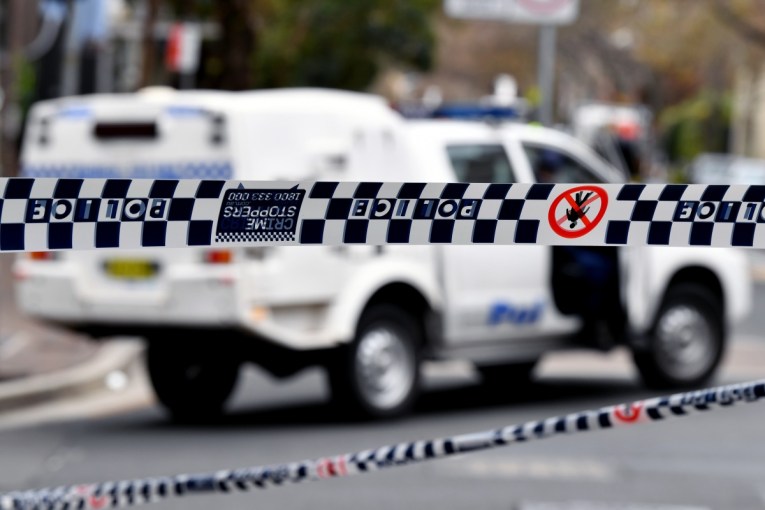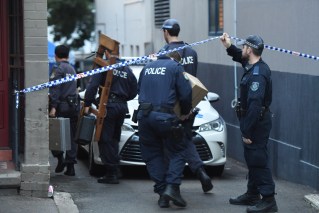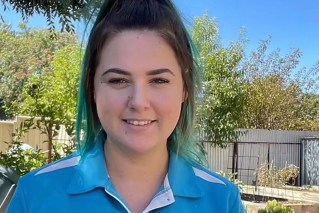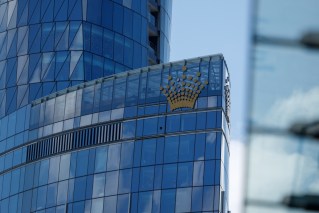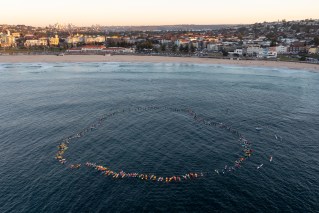Talk of NSW strike fine hike irks unions
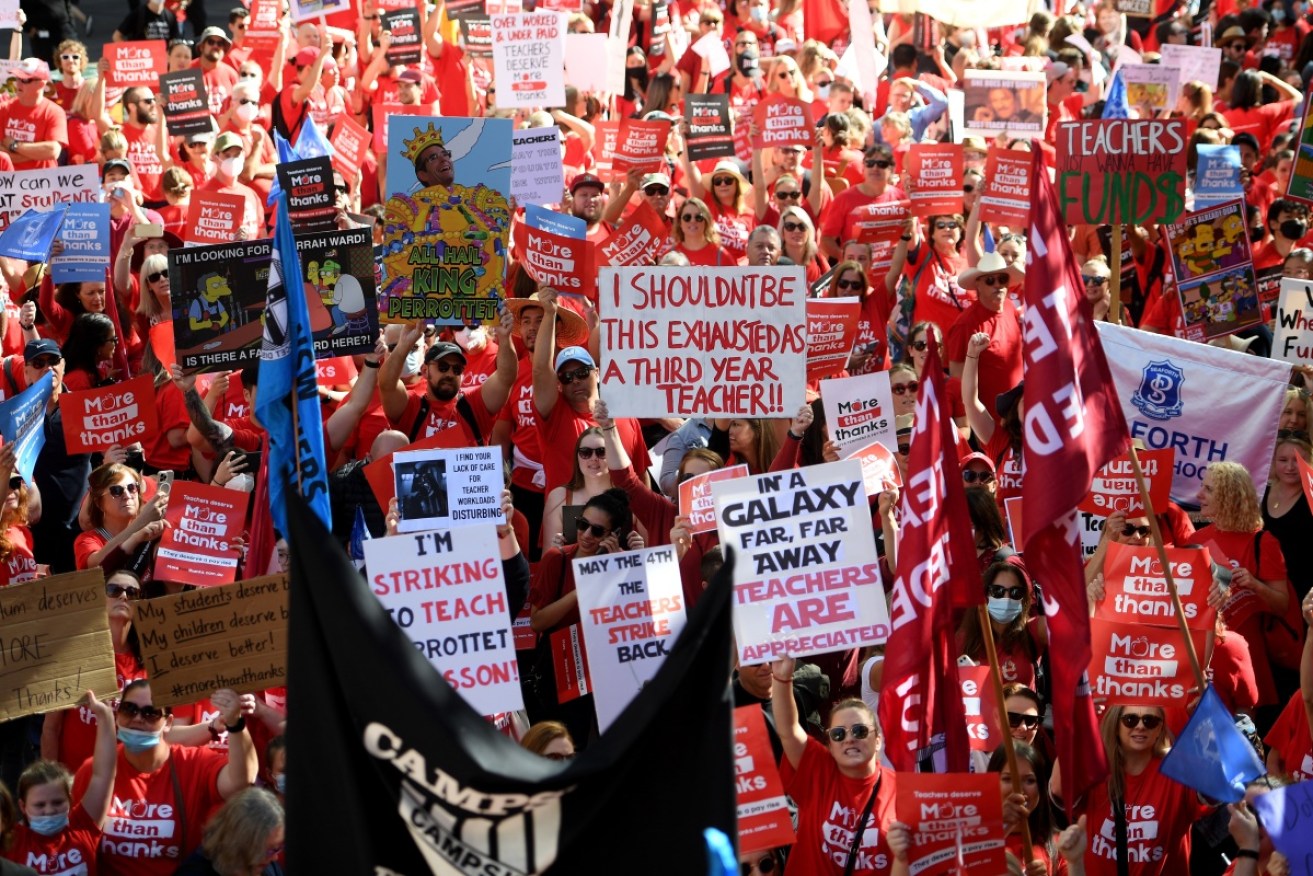
The NSW Teachers Federation has been fined for breaching orders banning industrial action. Photo: AAP
Unions say the NSW government is trying to intimidate workers as the premier says those organising illegal strikes should face the “hardest fines possible”.
The government wants to impose maximum fines of up to $55,000 for the first day of illegal industrial action and $27,500 for each subsequent day.
Proposed penalties could also fine unions $110,000 for the first day of an illegal strike, and $55,000 on each following day.
However, the required amendments to the Industrial Relations Act are unlikely to pass the parliament and Unions NSW Secretary Mark Morey says it’s a tactic designed to intimidate workers.
“Particularly cleaners, teachers, nurses, paramedics who are doing their job,” he told reporters on Thursday.
“This is an attempt by this government to silence workers who after 12 years of this government have had enough.”
These workers have had their wages cut and worked through COVID-19, he said, seeing many colleagues leave and their positions not filled.
“Now we have a workforce under pressure, and the pressure they are under means we have a health system, an education system and a broader public sector that is on the verge of collapse under this pressure.”
Nurses and teachers will go ahead with planned strikes on Tuesday and Thursday respectively, saying the government’s offer of a three per cent pay rise represents a cut to real wages.
Premier Dominic Perrottet said strikes deemed illegal should attract steep penalties.
“It’s very clear when the Industrial Relations Commission finds a strike to be illegal … there should be the requisite penalties in place,” he said.
Industrial action by NSW Paramedics in March and a health workers’ strike in April went ahead after being deemed illegal in the commission.
“If the union bosses conduct illegal strikes, inconvenience families right across NSW, then they should be hit with the hardest fines possible,” Mr Perrottet said.
The increased penalties were in line with every other Australian jurisdiction, he said.
Secretary of the Australian Paramedics Association Alan O’Riordan said the move was a “disgrace”.
“Having turned its back on frontline workers, the government now wants to intimidate us into silence,” Mr O’Riordan said.
Action was being taken by nurses, paramedics and teachers to benefit patients and students, he said
“Workers are voting for industrial action because their government is refusing to listen.”
Employee Relations Minister Damien Tudehope said the government was not averse to negotiating with the unions but wanted all parties to respect the IRC.
“I would have thought that a reasonable person would say, if a court makes an order, there should be an expectation that the parties comply with the terms of that order,” Mr Tudehope said.
Public sector workers had real wages that were higher than the private sector in the past.
“They will never tell you that, but … they have he had about a four per cent increase over the private sector in relation to real wage outcomes, ” he said.
Last month’s strike by teachers shut down more than 450 public schools, affecting more than 700,000 students.
Current penalties allow for a $10,000 fine for the first day of an illegal strike and $5000 a day after that.
If an organisation has previously been penalised, there is a maximum of $20,000 for the first day and $10,000 a day thereafter.
– AAP
